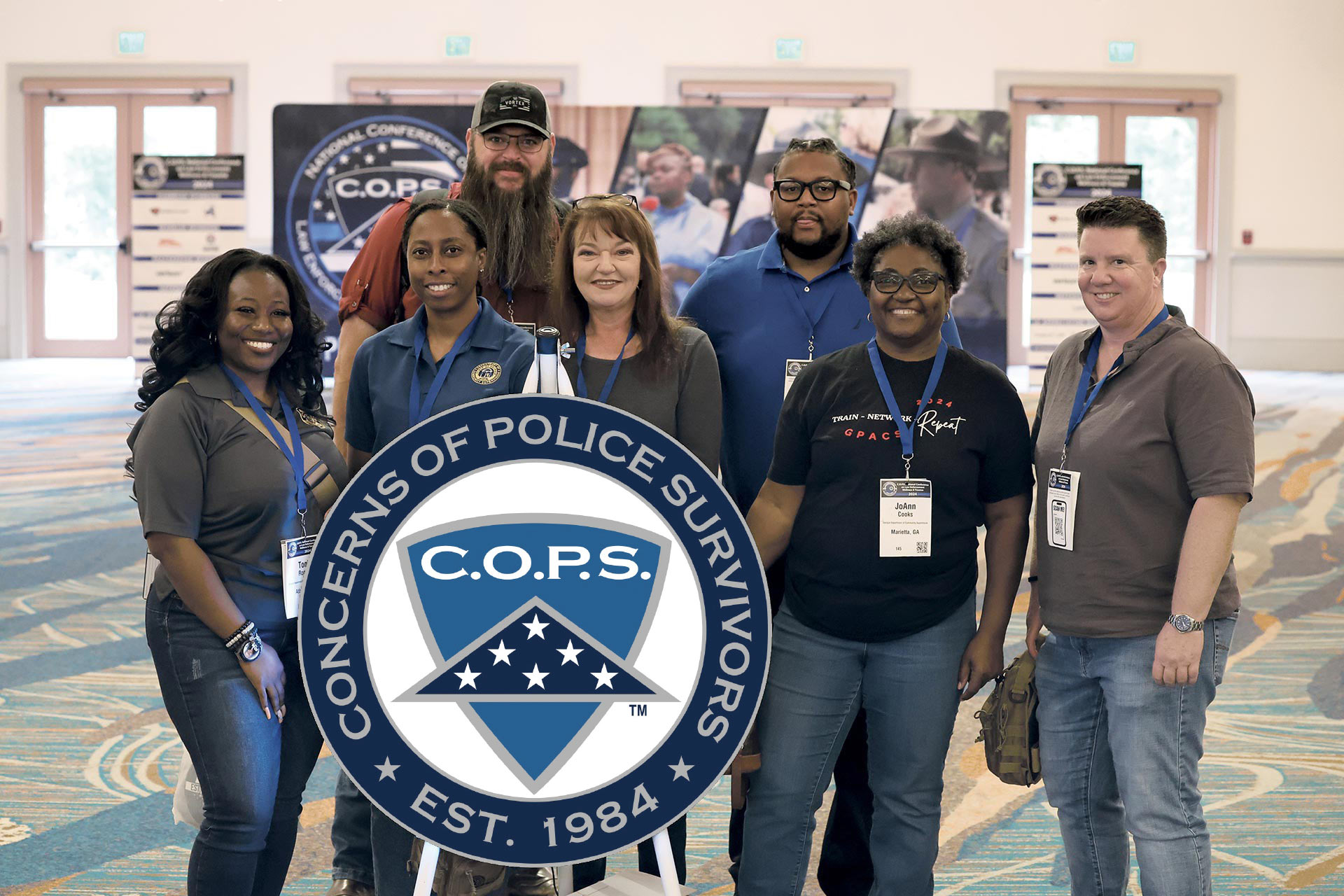
C.O.P.S. has supported and served surviving family members and co-workers for over four decades. We now serve over 85,000 survivors nationwide. What you may not realize is the resources we offer for preparing first responders for critical incidents and how to navigate a healthy career in law enforcement. Offering trainings and an entire wellness conference is a vital part of what C.O.P.S. does each year.
Dan Phillips, a retired U.S. marshal, has been involved with C.O.P.S. in several capacities. In an online post from August 6, Phillips said, “So many of us in our careers hit a point where we can’t see a way out of the madness and pain, but to give up in that moment (as so many do), means we aren’t training or teaching the right way.”
The average person experiences two to three traumatic incidents in their lifetime. First responders experience an average of 180 critical or traumatic incidents during their career. Not only are they coping with their own experiences, they are losing friends and co-workers to suicide at a rapid rate.
“When we remember that they were overwhelmed, not selfish or uncaring, we begin to shift from confusion to compassion.”
“I can now say that I’ve lost 14 friends to suicide, almost three times the amount to line-of-duty death. That is unacceptable,” Phillips said. “We cannot train our recruits as cops to be warriors and then not train them how to deal with the hurt and heartache of the job and life.”
In the past decade, C.O.P.S. has taken the initiative to shed light on health and wellness even further through the annual National Conference on Law Enforcement Wellness and Trauma, where police suicide is a main topic of discussion. This conference not only takes steps to help officers with their own thoughts of suicide and mental health, but it is also meant to help officers cope with the loss of their friends who have died by suicide.
Amy Morgan is a certified trainer for Applied Suicide Intervention Skills Training (ASIST). Morgan has worked with law enforcement officers for many years, specifically with cases of loss due to suicide.
“When the loss is due to suicide, grief becomes even heavier. It brings confusion, unanswered questions, and feelings of hurt, abandonment or even betrayal,” Morgan said. “Trying to understand why someone ended their life is often an impossible task. We view their decision through our own perspective — our experiences, our healing, our capacity for hope. But they were seeing life through a lens clouded by pain, fatigue and hopelessness.”
Learning the signs of suicide can make a difference, and preparing your agency is the first step. At the C.O.P.S. National Conference, you will receive tools and resources to get a plan in place for both prevention and response. In the event your agency loses an officer to suicide, response to the surviving family members is vital.
Morgan explained that both surviving family members and co-workers will experience the loss differently, but feelings of regret and trying to make sense of the death are the most common responses. “They didn’t give up on you — they gave up on themselves, because they couldn’t see any other way forward,” Morgan said. “This understanding doesn’t take away the pain, but it offers a place to start. It reminds us to look for warning signs, to offer practical help and to stay connected. When we remember that they were overwhelmed, not selfish or uncaring, we begin to shift from confusion to compassion — for them and for ourselves.”
The C.O.P.S. National Conference on Law Enforcement Wellness and Trauma is being hosted in New Orleans, Louisiana, November 13–16. If you are unable to make it to the conference this year, consider attending one of the free Traumas of Law Enforcement trainings in 2026. These trainings are held nine times each year, in different locations. The three-day training covers topics such as responding to critical incidents, health and wellness, peer support and warning signs of police suicide. Yes, we talk about suicide. Because far too many officers have taken their own lives, and the conversation needs to be had.
On behalf of everyone at C.O.P.S., know that you are not alone in your struggles. And healing, while difficult, is possible. If you are a member of a law enforcement family, or an officer yourself, please do not wait until tragedy happens to reach out for the tools C.O.P.S. can offer. A strong support system is just a phone call or email away, and we look forward to connecting with you.
To register for the National Conference or for more information, visit concernsofpolicesurvivors.org/national-conference.
As seen in the September 2025 issue of American Police Beat magazine.
Don’t miss out on another issue today! Click below:





